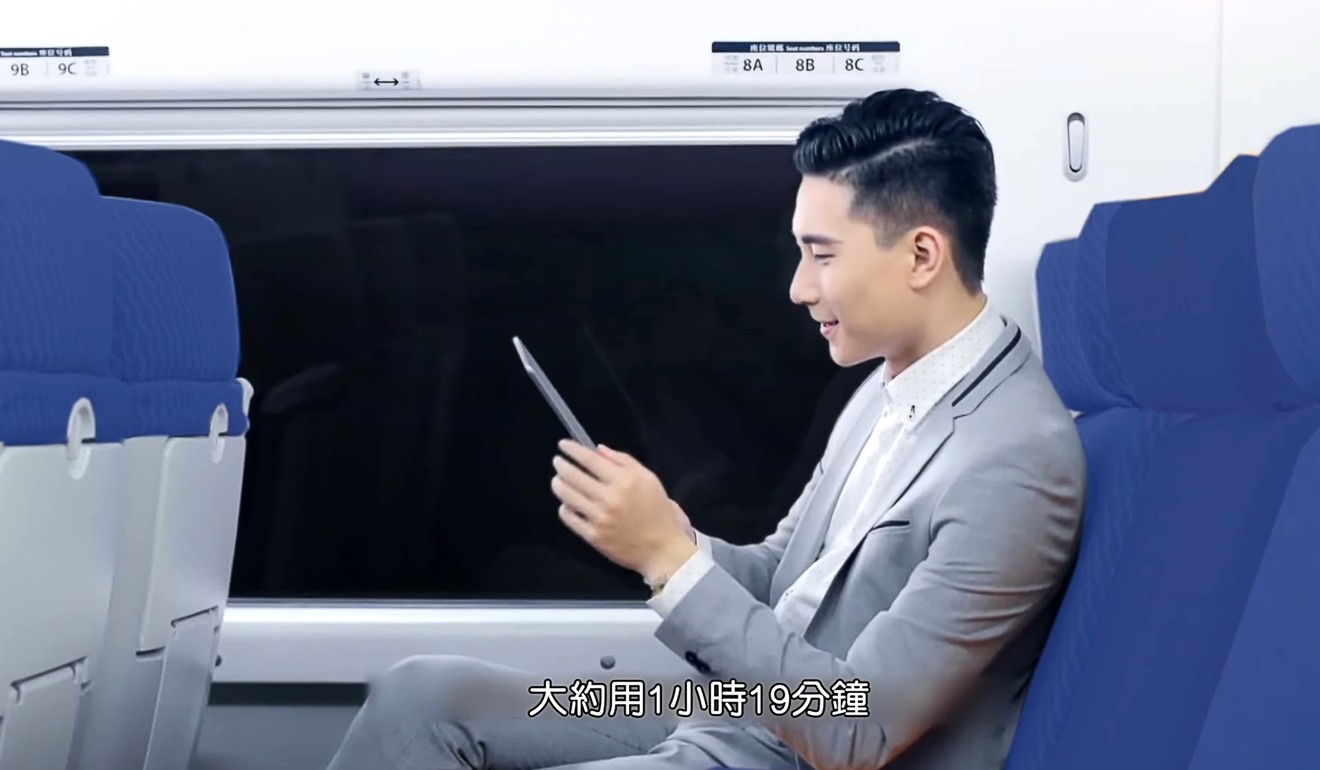
Guangzhou in 48 minutes? Hong Kong critics of high-speed rail plan urge pulling TV commercial over claim
Concern group also lodges complaint that TVB violated code of practice by airing ad
Opponents of a controversial plan in Hong Kong to allow mainland Chinese laws to be enforced in the city for a cross-border high-speed rail link have demanded a TV commercial touting the arrangement be pulled.
Activists from the Co-location Concern Group protested outside the Communications Authority on Monday and lodged a complaint with the watchdog, calling the advertisement “misleading” in claiming the rail passengers could reach Guangzhou from Hong Kong in 48 minutes.

The authority has so far received 318 complaints against the commercial since it first aired about two weeks ago. It said it would look into the complaints in accordance with established procedures.
Hong Kong government slaps down alternative border plans for high-speed rail link
Civic Party lawmaker Tanya Chan, a convenor of the group, explained: “What the commercial does not tell you is that the high-speed train station is not in downtown Guangzhou. The station is Guangzhou South, and you will have to transfer to the subway and take another 40 minutes to one hour to get to downtown Guangzhou.”
What the commercial does not tell you is that the high-speed train station is not in downtown Guangzhou
Kim is depicted boarding an express train, with the narrator saying he can “comfortably” reach “Guangzhou” after a “48-minute ride”. But the subtitles instead read “Guangzhou South”. Ching is shown trying to rush to the meeting venue and Kim has already arrived.
The commercial does not show how Kim made his way from Guangzhou South station to the meeting venue.
Gary Fan Kwok-wai, a spokesman for the concern group, claimed the commercial violated the Communications Authority’s generic code of practice on television advertising standards, which states that information “must be accurate and not misleading by concealing or failing to make clear significant facts”.
The code of practice also requires TV licensees to make their best effort to make sure claims in a commercial they broadcast are not “false or misleading”.
Hong Kong’s justice minister responds to opposition fears on joint railway checkpoint
MTR Corp said in a statement on Monday the promotional video was intended to “highlight the connectivity and convenience of the express rail link, which offers another option for passengers travelling to and from mainland cities in the future”.
“In the video, it has been stated that the express rail link can reach Guangzhou (South) directly from West Kowloon in 48 minutes,” the railway operator added.
Separately, a TVB spokesman said in a statement: “We had asked MTR and received a written confirmation about the 48-minute claim.”
Under the joint checkpoint plan, local officials are to allow mainland officers to clear immigration and customs for passengers in an area within the Hong Kong side of the high-speed train terminal. Mainland laws are to be enforced in that designated area.
One station, two systems: how joint checkpoint will work for Hong Kong-mainland China high-speed rail line
The HK$84.4 billion rail link is scheduled to open in the third quarter of next year.

